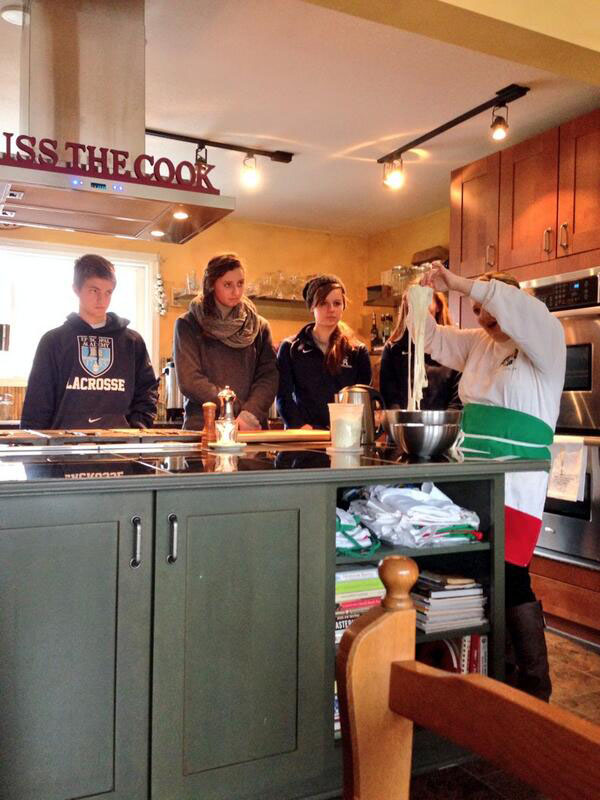Students this January embraced an entirly different form of high school education through a two week experiencal learning environment. Following J-Term, Scholium asked several students to review their experience.
Financial Literacy
I learned how to make a budget, invest, and now know the importance of the economy. For instance saving up for retirement is not something that is on the average EA student’s mind, however it is something that should not be ignored.Visiting the New York Stock Exchange showed us students something that we simply could not experience in a traditional high school educational environment.
-Thomas Woodville ’17
Western Diet
Diving deep into the American food system was shocking. We visited grocery stores to see that “real” food can be easy to find, visited a local farm, and ate at various farm-fresh restaurants. Finally, we broke into teams and created healthy fast food restaurants. Ultimately, we created healthy, affordable alternatives to fast food chains like McDonalds or Burger King for those who cannot afford to eat healthy.
– Meredith McCarthy ’14
Kitchen Chemistry
Kitchen Chemistry taught me the real world application of chemistry in everyday cooking. Cooking everything from marshmallows to soda caviar, the amount of information I absorbed throughout the course was incredible. The similarities that both cooking and chemistry have in common are striking. The precision needed to perfect a dish is so similar to that in chemistry. The trips we took to Studio Kitchen, Avero, Ela, and Caputo Brothers encapsulated the idea that the secret to good food is bringing out the flavor in the simplest ingredients with a new and unique twist. Not to mention, the food was exquisite.
-Nina Pagano ’16

Photo courtesy of Leah Yao ’15
Capitalism & Democracy
Beginning the course with a study of various economists as well as political and economic systems, I learned about the requirements for a democratic system as well as further understanding into American monetary policy. The pinnacle of the course was watching and discussing a collection of lectures given by Michael Sandel at Harvard College entitled “Justice: What’s the Right Thing to Do?,” the most popular class ever at Harvard. Debate topics ranged from redistribution of wealth to John Rawls’ theory, Justice as Fairness.
-Ryan Quinlan ’14
Winter Shorts
Winter shorts explored characters, elements, and natural objects for story potential. This allowed us to work our way to see what plays could potentially be in our program. Charlotte Ford, a professional actress, story developer, and playwright, showed us many acting techniques for four days. She also showed us how to create a story by having characters interact with each other through improvisation.
All in all, we collected six skits, put them into a program, and performed them.
-Alex Burman ’16
Urban Farming
J-Term provided us with an opportunity to learn about the practice of farming in an urban area on a first hand basis. Instead of sitting in a classroom learning about it, we actually visited these farms and got to see the difficulties of farming. This course changed my outlook on the importance of farming especially in inner-cities. Fresh produce is scarce in these places and this contributes to the health problems that these cities have. By farming, we can provide fresh vegetables at a reasonable price to these people that don’t have access to it.
– John Minicozzi ’15
Archiving EA
During the whole two weeks, each student researched a specific topic—anything from popular 20th century sports to Episcopal graduates in World War II. We collected photographs, wrote captions, and found objects like a rifle club trophy. We took our first trip to the Philadelphia Conservation Center and the Penn Archives. The painstaking process that the conservationists go through was enlightening, and we learned that conservationists must have experience in chemistry as well as art history in order to restore artifacts correctly. We also took a trip to the Penn Archives where we were able to look at the Episcopal-Penn connections from the past until today.
– Livia Wallick ’15